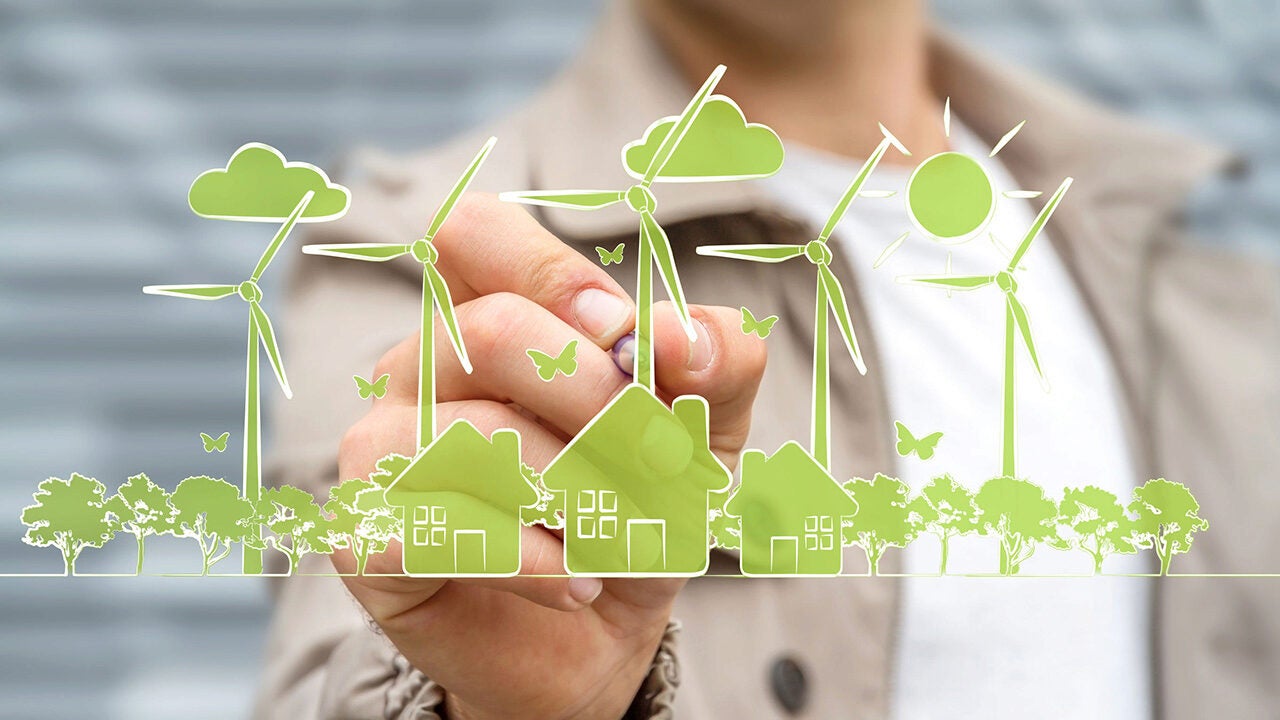Sustainability and Recommerce


As we head into a new decade, all generations are rallying around the challenge of global sustainability. But what does sustainability truly mean? We asked Eric Orts, a Wharton professor of legal studies and business ethics, that very question. “For me, the basic idea is that we live our lives as human beings, we use our natural resources and we treat the natural world in a manner that at minimum does not hurt future generations,” says Orts. “We don’t destroy the earth in order to have a great life now without caring about our children, grandchildren and future generations of human beings…and various species of animal and plant life.”
Tomorrow’s leaders must contemplate how to solve sustainability-related crises, like global climate change, as well as embrace a new way of earning, spending and living in the ever-growing circular economy. The circular economy is a deeper form of recycling, where you eliminate waste and continually reuse resources. This mindset requires sustainability champions and leaders who have the knowledge to make informed business and consumer decisions and possibly even launch new companies poised to save our planet. Students have been inspired by the words and actions of teen advocates like Greta Thunberg, and many hope to turn their activism into a lifestyle, if not a career. Adds Orts: “Everyone needs to care about this issue.”
Article
Fashionista Environmentalists Shop ‘Recommerce’ Instead of the Mall
Once upon a time, we bought clothes, hung them in our closets and wore them until we grew bored with the style. Eventually they either got donated to a charity or thrown in the trash. But things are changing quickly, as fashion recommerce — renting, reselling, thrifting — becomes a bigger part of the retail industry. Paired with this article on sustainability, read and discuss recommerce with your students, many of whom have contributed to the growth of this industry by frequenting sites like Thredup and Poshmark. With recommerce sales expected to more than double to $51 billion by 2023, this is a great time to encourage teens to debate the emergence of new industries and what they mean for traditional retail strongholds, like the mall.
Lesson Plan
Sustainability as Good Business Practice
In today’s world, business and industry are becoming more conscientious about the production of goods and services. In this introductory lesson, students will begin to better understand the definition of sustainability and learn about how it has become a common symbol of good business practice. Students will also explore why and how the business world has come to embrace this focus, and think about how the general public looks at this issue, as well as discuss how entrepreneurs are addressing the issue of sustainability.
Explore our full library of educator toolkits HERE!
Hands-on Learning
Armed with their new sustainability skills, it’s time for your students to put their global leadership to the test. They should understand by now that businesses and industries of all kinds are adopting sustainability practices, if not building entire companies to fuel sustainability in one way or another.
Divide your class into several teams (companies, if you will), each led by a CEO. Each team selects (or is assigned) one of the following topics to research and explore. Using the linked KWHS articles, related links and resources with each article, student teams should role play as if they are a company in that particular industry, sharing who they are, how they began, what they do, why they do it and how sustainability aligns with their business model and their decision-making (or how it doesn’t align!). Encourage team members to take on different titles within the company. Finally, each team should think deeply about the future of their company and their industry to share with observers (the class) where they hope to be in 10 years. What do they imagine for their industry and how it will help shape a more sustainable world? End by allowing students in the class to ask questions of the teams and challenge perspectives.
Video Glossary
Provide an extra layer of learning for your students with our video glossary. Here, Wharton professors define terms: Renewable Energy, Sustainability, Business Model and Business Ethics.
KWHS Quote of the Month
“Most people don’t understand why they must protect the environment. They think that climate change has little effect on their daily lives. If I only get people’s sympathy from the topic that polar bears don’t have homes caused by global warming, it is not enough. I need to inform people how promotion of a low-carbon economy can lead to both development of Gross Domestic Product and environmental protection. And thus, people will pay more attention to the environment because it will help them financially.” –High School Student Zhiyan Y., Guangdong Experimental High School in China, in the KWHS article, The Low-carbon Economy Is a High Global Priority.